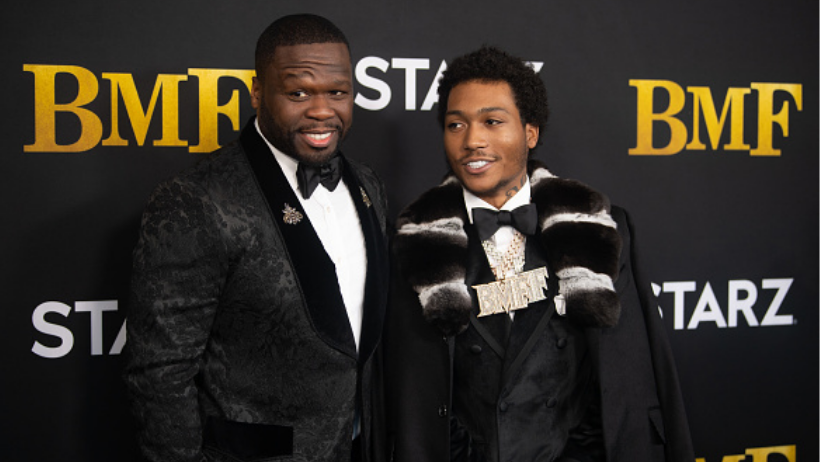Prince Williams/FilmMagic via Getty Images
Starz Entertainment, Lions Gate, and 50 Cent (Defandants) are all being sued for Trademark Infringement by Byron Belin (Platinff) in California Central District Court for allegedly stealing his registered trademark, “BMF" (U.S. No. 87534094 ) and using it to promote a TV series created and produced by Curtis "50 Cent” Jackson, which tells the story of the Detroit-based drug-trafficking organization known as the Black Mafia Family. According to the complaint Starz allegedly refused to engage in any discussions regarding the licensing of the BMF trademark and willfully continued to use it. The series premiered September 9, 2021 and is reportedly one of Starz's most successful TV series, renewing for a second season.
In 2017, Belin filed a 1(b) intent-to-use Trademark application with the USPTO in Class 41 for Entertainment Services (motion pictures, television and Internet) with a first use date of 10-24-2017. The BMF trademark was officially registered in 2020.
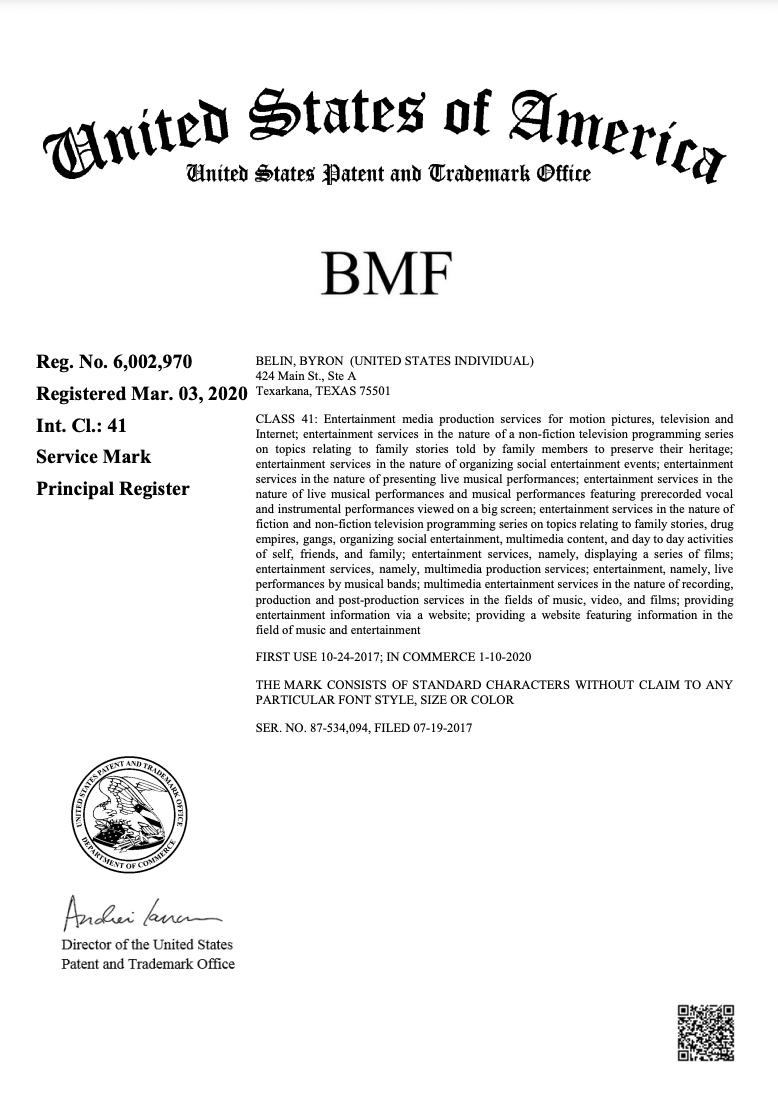 50 cent's company, G-Unit Brands, filed several intent-to-use applications for various BMF logos in August 2021 for merch (bags, jewelry, phone cases etc.) in classes 09,14,18,16,and 21 before the series aired. These applications do not cover entertainment servces and are still pending with the USPTO.
50 cent's company, G-Unit Brands, filed several intent-to-use applications for various BMF logos in August 2021 for merch (bags, jewelry, phone cases etc.) in classes 09,14,18,16,and 21 before the series aired. These applications do not cover entertainment servces and are still pending with the USPTO.
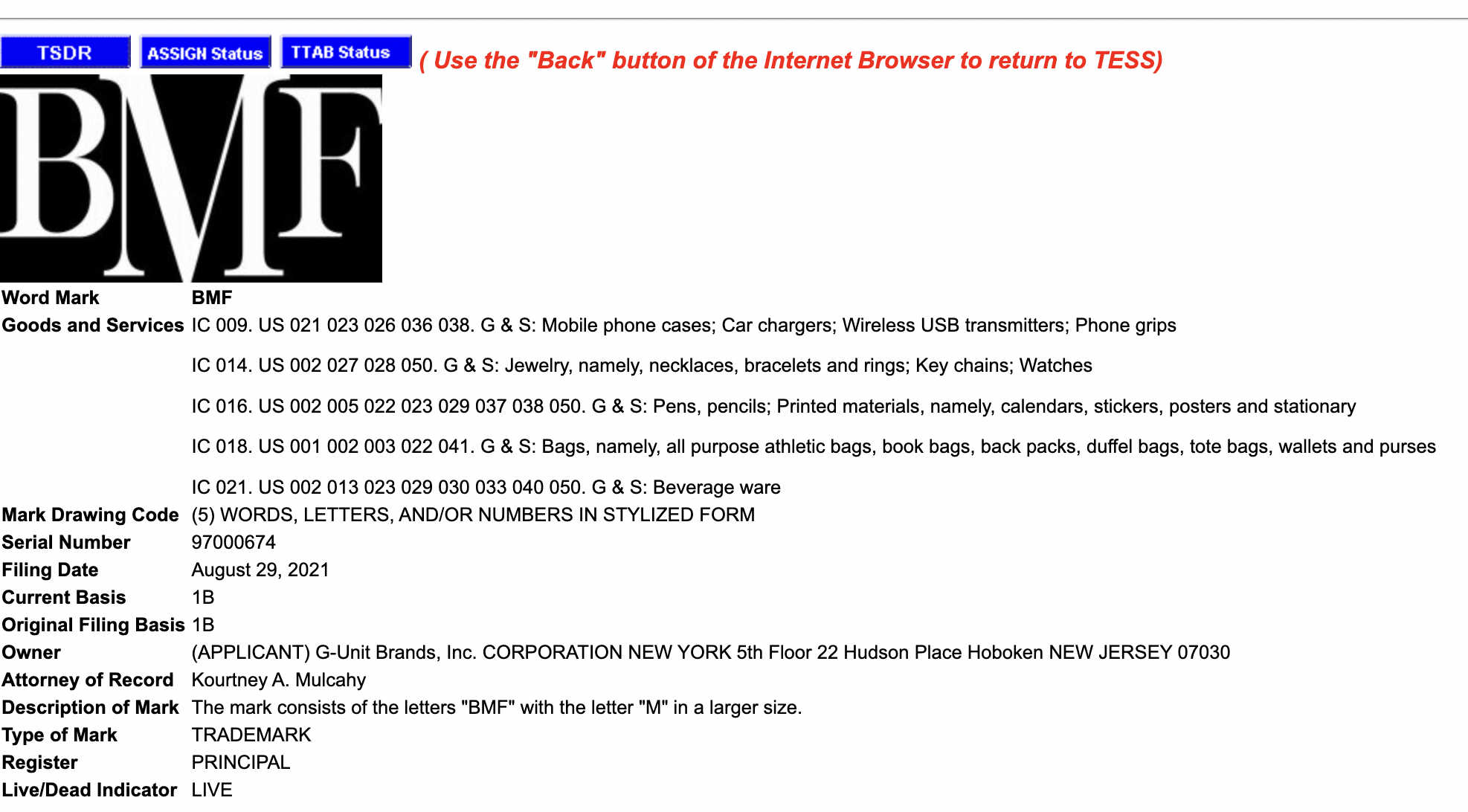
The Defendants moved to dismiss Belin’s complaint, arguing that their use of the BMF mark was protected by the First Amendment under the test set forth by the Second Circuit in Rogers v. Grimaldi and adopted by the Ninth Circuit. While claims of trademark infringement under the Lanham Act are generally governed by a likelihood of-confusion test, courts in the Ninth Circuit apply the Rogers test when the alleged infringement concerns an expressive work to accommodate First Amendment interests. The district court granted the defendants’ motion to dismiss and the court dismissed Belin’s complaint with leave to amend on June 17, 2022.
The burden has now shifted to Belin to show (1) that he has a valid, protectable trademark, and (2) that the trademark is either not artistically relevant to the underlying work or explicitly misleading as to the source or content of the work. In a smiliar case, the Ninth Circuit has already held that Twentieth Century Fox's use of the word "Empire" in their television show’s title where its “subject matter” was a “conglomerate, ‘Empire Enterprises’” was “artistically relevant”. So, Belin must prove that Defendants’ use of the BMF Mark “explicitly misleads consumers as to the source or the content” of the Series for Plaintiff’s claims to remain viable at this stage.“ The relevant question, therefore, is whether Defendant's BMF Series would confuse consumers into thinking that Belin is somehow behind the series or that Belin sponsors the series.
Belin amended his complaint and refiled on 07/18/22, providing more evidence of how Defendants deliberately chose to abbreviate the term Black Mafia Family and title the show "BMF," identical to Belin's BMF Mark for which he advertises his YouTube "BMF 'The Series'" program and his "BMF Promotions" business. Will this additional information be enough to sway the court and overcome the highbar needed to prevail?
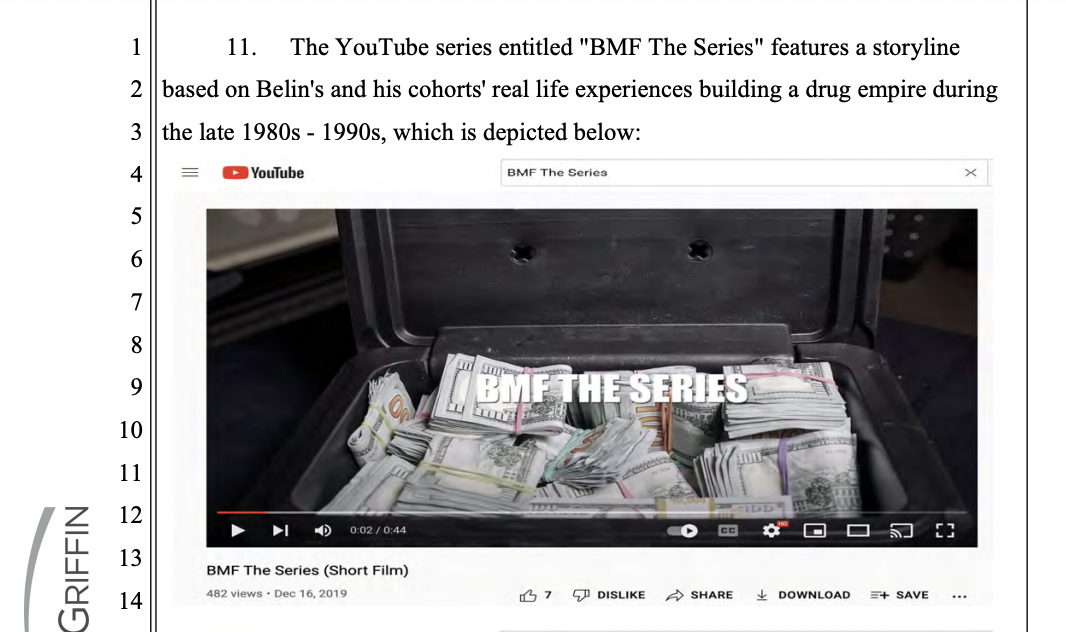
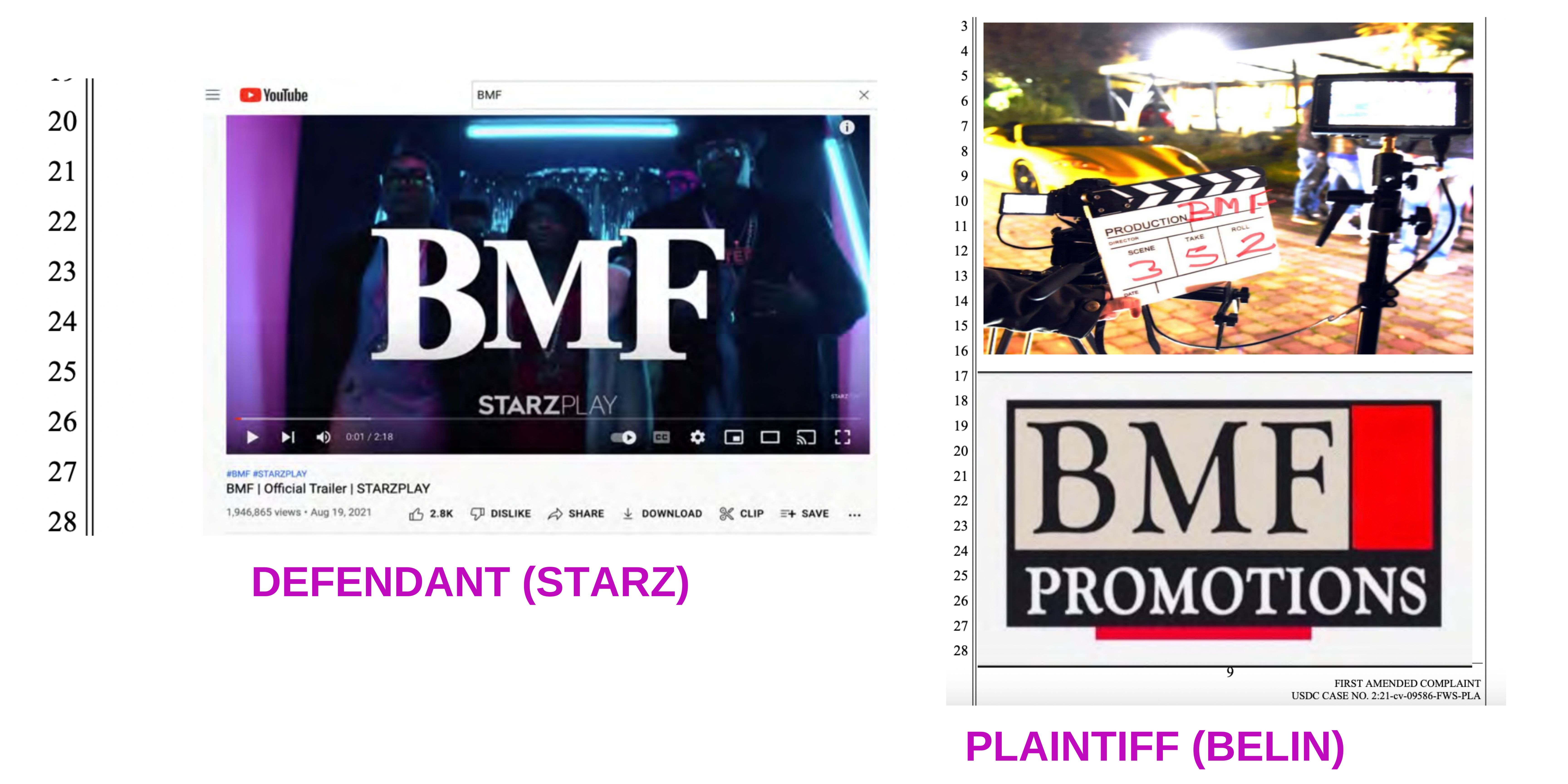
The case is: Byron Belin v. Starz Entertainment, LLC et al (2:21-cv-09586), California Central District Court
Filed: 12/10/202. Stay tuned for more udpates as the case unfolds.

